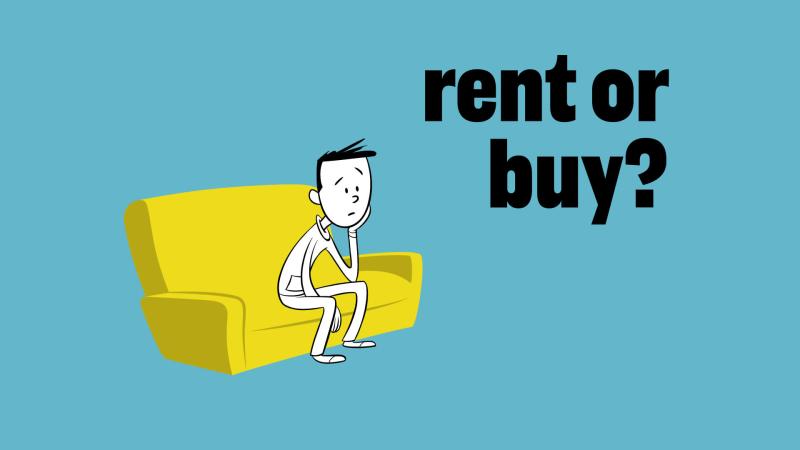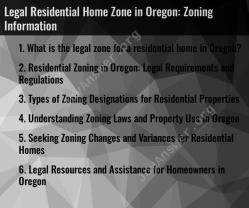Should I rent a home or buy a home?
The decision between renting and buying a home depends on various factors, and there is no one-size-fits-all answer. It's essential to consider your financial situation, lifestyle, and long-term goals. Here are some key factors to consider when deciding whether to rent or buy a home:
Renting:
Flexibility: Renting provides more flexibility, allowing you to move easily if your job, family situation, or personal preferences change.
Maintenance: In many rental situations, the landlord is responsible for maintenance and repairs, which can save you money and time.
Short-Term Commitment: Renting is often a more suitable option for those who anticipate living in an area for a shorter period and don't want the long-term commitment of homeownership.
Financial Considerations: Renting may be more financially viable in the short term, especially if you're not ready for the financial responsibilities associated with homeownership.
Buying:
Equity and Investment: Homeownership allows you to build equity over time, and real estate has the potential to appreciate, providing a long-term investment.
Stability: If you plan to stay in an area for an extended period, buying a home can provide stability and the opportunity to establish roots in a community.
Personalization: Homeownership allows you to personalize and modify your living space to suit your preferences, something that is often restricted in rental properties.
Tax Benefits: Homeowners may be eligible for certain tax benefits, such as deductions on mortgage interest and property taxes.
Considerations for Both:
Financial Readiness: Assess your financial situation, including your credit score, debt, and savings. Owning a home involves upfront costs and ongoing expenses.
Market Conditions: Consider the real estate market in the area where you want to live. In some cases, it might be more cost-effective to buy, while in others, renting may be the better option.
Future Plans: Consider your future plans, including potential job changes, family expansion, or lifestyle shifts. Your housing decision should align with your long-term goals.
Maintenance and Responsibilities: Homeownership comes with maintenance responsibilities and costs. Assess whether you are prepared for the time and effort required to maintain a property.
Ultimately, the decision to rent or buy depends on your personal and financial circumstances. It can be helpful to consult with a financial advisor or a real estate professional to assess your specific situation and make an informed decision based on your goals and priorities.
Homeownership dilemma: Should I rent or buy a home?
Whether to rent or buy a home is a major life decision that depends on a variety of factors, including your financial situation, lifestyle, and long-term goals.
Renting
Pros:
- Lower upfront costs
- More flexibility
- Less maintenance and responsibility
Cons:
- Rents can increase over time
- You don't build equity
- You may have less control over your living space
Buying
Pros:
- Build equity over time
- More control over your living space
- Potential tax benefits
Cons:
- Higher upfront costs
- Less flexibility
- More maintenance and responsibility
Factors to consider and tips for making an informed decision based on individual circumstances
Here are some factors to consider when deciding whether to rent or buy a home:
- Financial situation: How much money do you have saved for a down payment and closing costs? Can you afford the monthly mortgage payments, property taxes, and insurance?
- Lifestyle: Do you plan to stay in one place for several years or do you move frequently? Do you want to be responsible for home maintenance and repairs?
- Long-term goals: Do you want to build equity in a home? Do you plan to have children and need a larger space?
Tips for making an informed decision:
- Do your research. Compare the costs of renting and buying in your area. Consider factors such as the average home price, mortgage rates, and property taxes.
- Talk to a financial advisor. A financial advisor can help you assess your financial situation and determine whether you are ready to buy a home.
- Get pre-approved for a mortgage. This will give you an idea of how much you can borrow and what your monthly payments will be.
- Work with a real estate agent. A real estate agent can help you find the right home for your needs and budget.
Conclusion
The decision of whether to rent or buy a home is a personal one. There is no right or wrong answer. Weigh the pros and cons of each option carefully and consider your individual circumstances before making a decision.
Here are some additional tips for making the decision:
- Consider your future plans. If you plan to move in the next few years, renting may be the better option. However, if you plan to stay in one place for a long time, buying may be a better investment.
- Talk to people who have experience with both renting and buying. Get their advice and insights to help you make the best decision for your situation.
- Don't be afraid to negotiate. Whether you are renting or buying, don't be afraid to negotiate with the other party to get the best deal possible.













